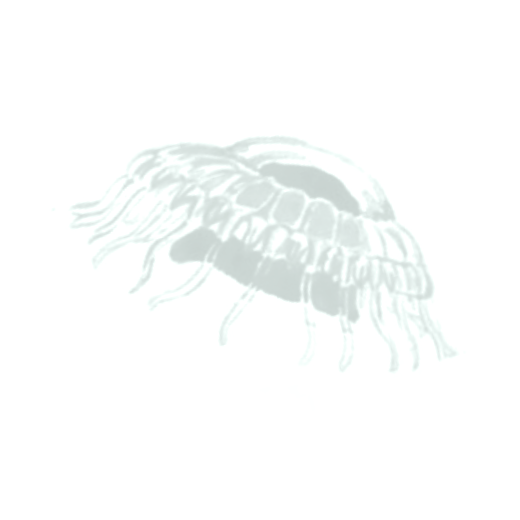Marine Microbiome
Microbial environment
Microbial life has dominated the marine environment for billions of years. Microbes make our oceans work by forming and sustaining biogeochemical cycles and underpinning food webs. They can be impacted by ongoing global change and other human activities, and yet are a valuable source of biomolecules and enzymes with great biotechnological potential. Our work is opening the marine microbiome ‘black box’, revealing the biology and ecology of a range of different microbial groups including viruses, bacteria, phytoplankton and fungi.
Microbiology and Molecular Ecology
Exploring the biology, ecology, and evolution of microbial life.
Research Lead – Professor Michael Cunliffe
Our research is broadly divided across two major approaches. We undertake fieldwork to study the ecology of microbes in their natural environment, including the open ocean and polar regions. We also study microbial cultures in the lab to determine their biology. Both approaches utilise a large research toolbox. Our skills and tools are also being applied more broadly, such as with environmental DNA (eDNA) based approaches, to study all marine biodiversity. A major focus of our group is to better understand the biology and ecology of marine fungi funded through the ERC Consolidator grant MYCO-CARB.
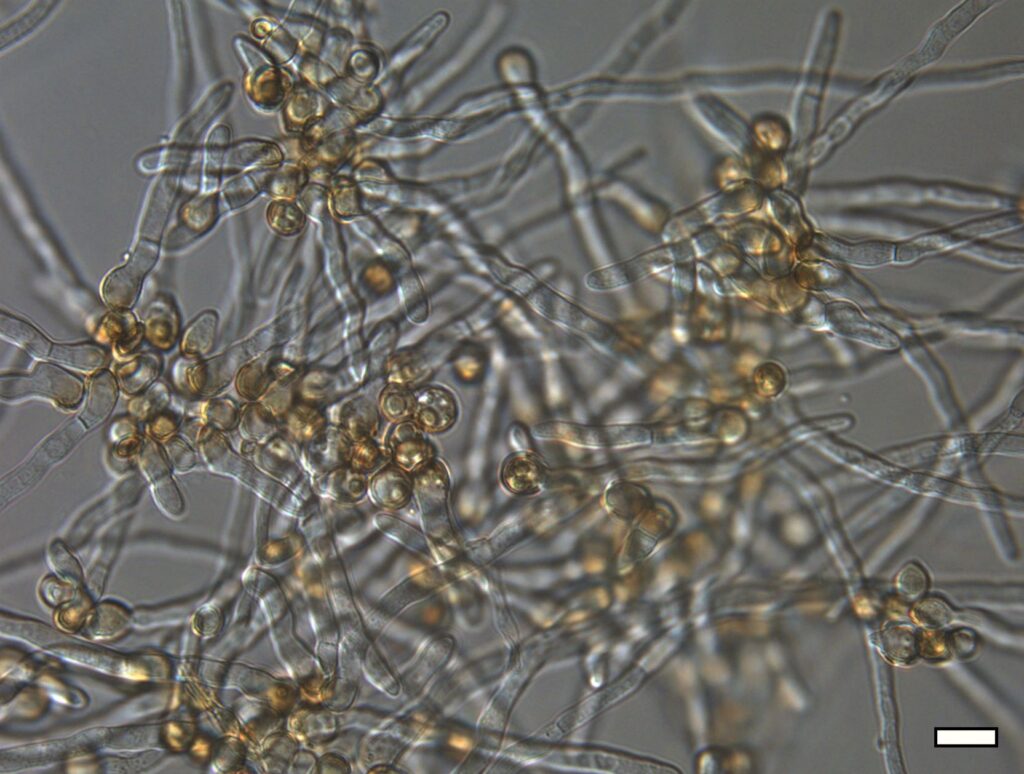
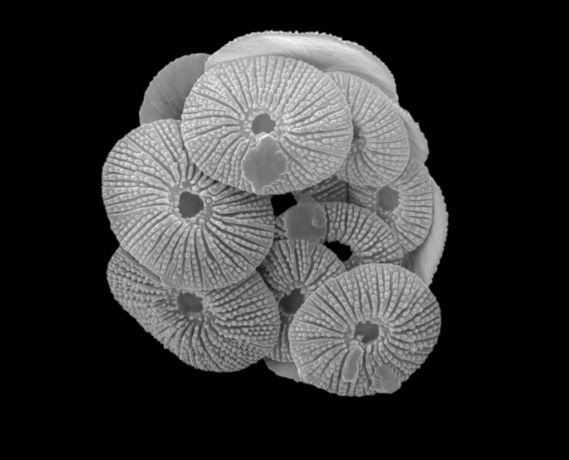
Algal Signalling and Stress Physiology
Uncovering the cellular mechanisms in marine phytoplankton that underpin and drive global biogeochemical cycles.
Research Lead – Dr Glen Wheeler
Phytoplankton exist in a dynamic environment where they must adjust rapidly to a range of abiotic (light, nutrients) and biotic (grazing, pathogens) stimuli. We study the cellular mechanisms that allow phytoplankton to sense and respond to changes in their environment. Allowing us to better understand how phytoplankton may respond to future changes in marine ecosystems and why some species do better than others. Additionally, we study biomineralisation in coccolithophores, a group of phytoplankton that produce an extracellular covering of calcium carbonate plates. Calcification by coccolithophores plays an important role in the global carbon cycle, but is threatened by future changes in the chemistry of our oceans caused by increasing atmospheric carbon dioxide. We investigate how mechanisms of calcification differ between coccolithophore species and the impact from environmental change.
Algal Microbiome and Ecophysiology
Understanding the fundamental mechanisms controlling how phytoplankton interact with their environment and other planktonic microbes in the ocean.
Research Lead – Dr Katherine Helliwell
Our research identifies the fundamental molecular mechanisms that control how phytoplankton interact with their environment and other planktonic microbes in the ocean. We examine how these interactions have evolved and the metabolic processes that govern them. Our research focuses on four key themes: nutrient physiology and signalling to determine how critical nutrients regulate phytoplankton growth and productivity; microbial interactions in the ocean studying the mechanistic basis of the interactions of phytoplankton with other microbes; the evolution of metabolic processes in photosynthetic eukaryotes; and gene function to ecosystem function using cutting-edge molecular approaches (e.g. CRISPR-Cas9) to interrogate gene function and ecophysiology in important marine microbial species. We aim to gain a comprehensive picture of the evolution of phytoplankton biology and examine the distribution and evolution of metabolic and signalling processes in eukaryotes.
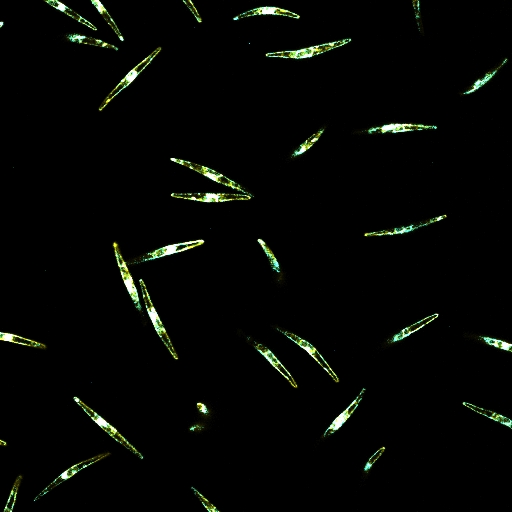
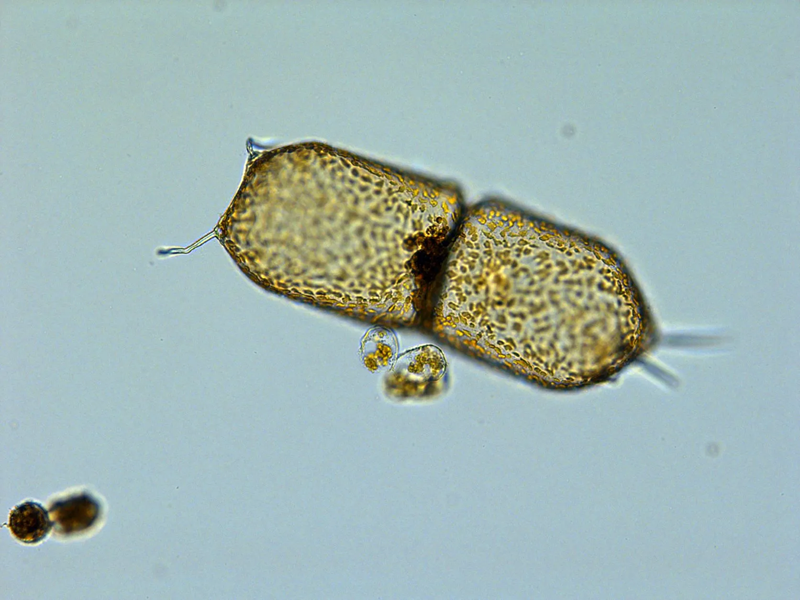
Algal Cell Biology
Research Lead – Professor Colin Brownlee
Life in the ocean plays a critical role in the Earth’s carbon and nutrient cycles and the regulation of our climate. Our research addresses the cell biology of key marine organisms, such as the calcifying coccolithophores and silicifying diatoms. They are of critical importance in global carbon and nutrient cycling. We adopt a multidisciplinary approach with both laboratory cultures and natural populations, combining comparative physiology, molecular biology and genomic studies to better understand how phytoplankton populations may respond or adapt to changing conditions in the oceans.
Evolution of Early Branching Metazoans
Studying the molecular mechanisms governing the evolution of animals.
Research Lead – Dr Venky Modepalli
Currently, our perception of the animal kingdom is biased towards being highly bilateral – having symmetrical halves. In order to gain a broader perspective on the evolution of animals, science must look into a wider range of living species such as non-bilaterian animals that diverged more than 600 million years ago like sponges, comb jellies, sea anemones, corals, and jellyfish. Studying these animals will give our researchers a new perspective about the evolution of the animal kingdom.
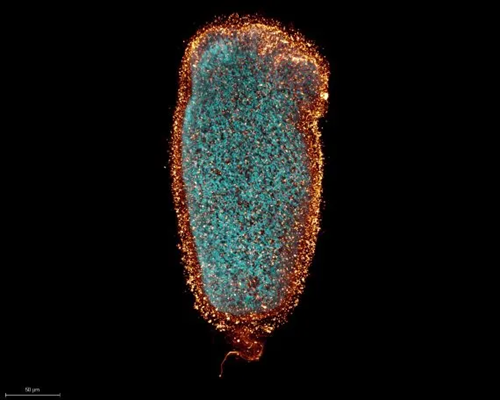
Marine Microbiome Research Fellows
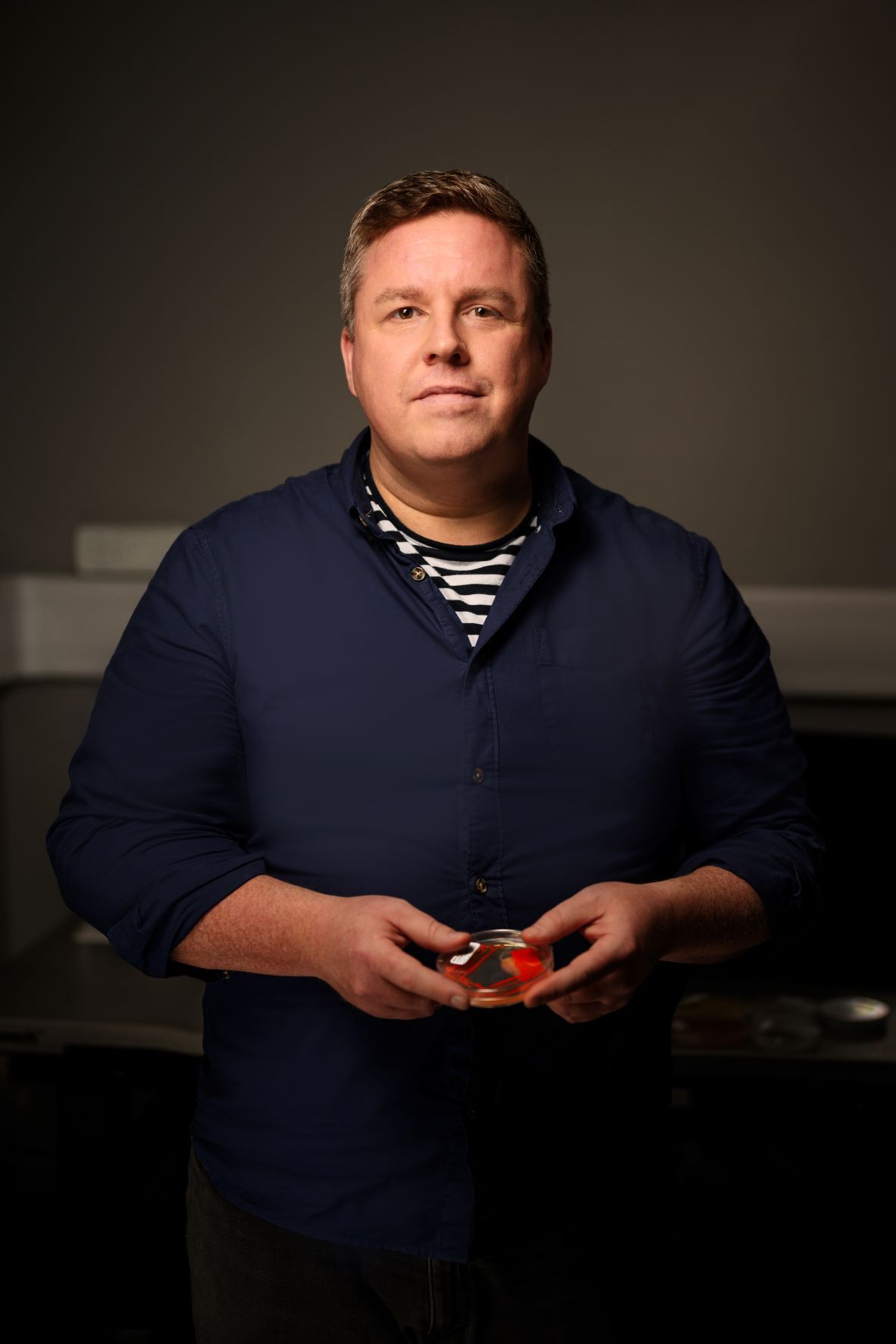
Professor Michael Cunliffe, FMBA
Director of Science, Senior Research Fellow
Professor Michael Cunliffe, FMBA
Director of Science, Senior Research Fellow
I received a degree in environmental biology from the University of Liverpool, and a MSc and PhD in Microbiology from the University of Manchester. After a postdoc at the University of Warwick, I joined the Marine Biological Association (MBA) in 2010 as a MBA Research Fellow (Group Leader). In 2014, I started a joint appointment between the MBA and the University of Plymouth, where I am currently a MBA Senior Research Fellow and Professor of Marine Microbiology in the School of Biological and Marine Sciences. I create knowledge through research and communicate knowledge through teaching, outreach and knowledge exchange activities. At the MBA I lead a diverse research group who study a range of topics in microbial biology, ecology, and evolution. Our research group works both in the lab and out in the marine environment, locally around Plymouth and in distant locations, including polar regions and the open ocean.
Research Group: Microbiology and Molecular Ecology
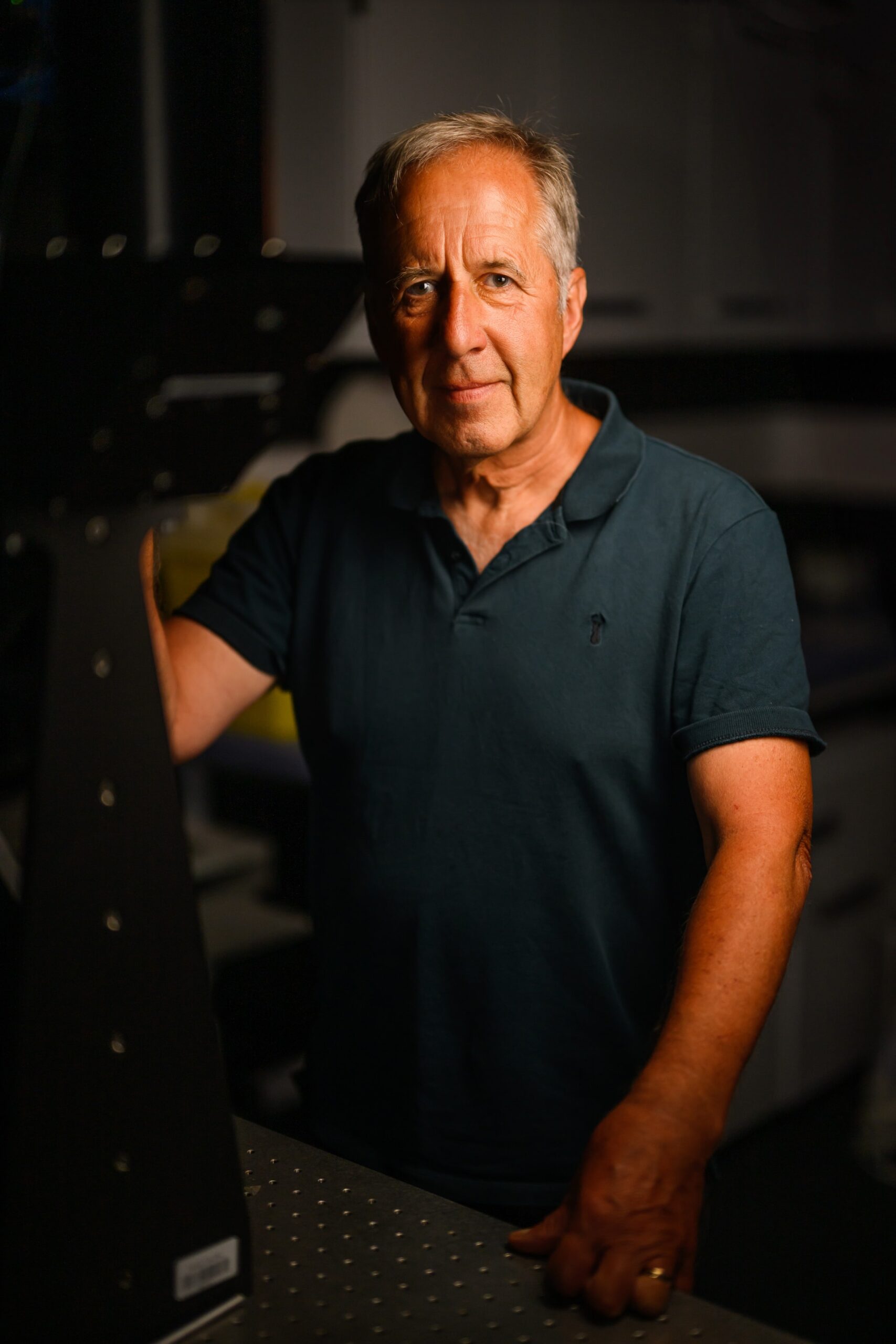
Professor Colin Brownlee, FMBA, FLS
Lankester Research Fellow
Professor Colin Brownlee, FMBA, FLS
Lankester Research Fellow
I am a Ray Lankester Fellow at the Marine Biological Association and Professor Emeritus in the School of Ocean and Earth Sciences at the University of Southampton. I am a former MBA Director and Senior Research Fellow. I study algal cells in order to understand fundamental aspects of cell biology, including transport across cell membranes, cellular homeostasis and cellular signalling processes that determine how phytoplankton cells sense and respond to changes in their environment. This research is providing unexpected insights into the evolution of membrane transport and signalling mechanisms in eukaryote organisms more generally. My research addresses the cell biology of key marine organisms, such as the calcifying coccolithophores and silicifying diatoms that are of critical importance in global carbon and nutrient cycles. This work has recently uncovered a new class of cation channels that play important roles in cell signalling in diatoms and coccolithophores as well as novel proton channels that are critical components of the coccolithophore calcification machinery. I adopt a multidisciplinary approach combining comparative physiology, molecular biology and genomics together with new advances in microscopy to better understand how phytoplankton populations may respond or adapt to changing conditions in the oceans.
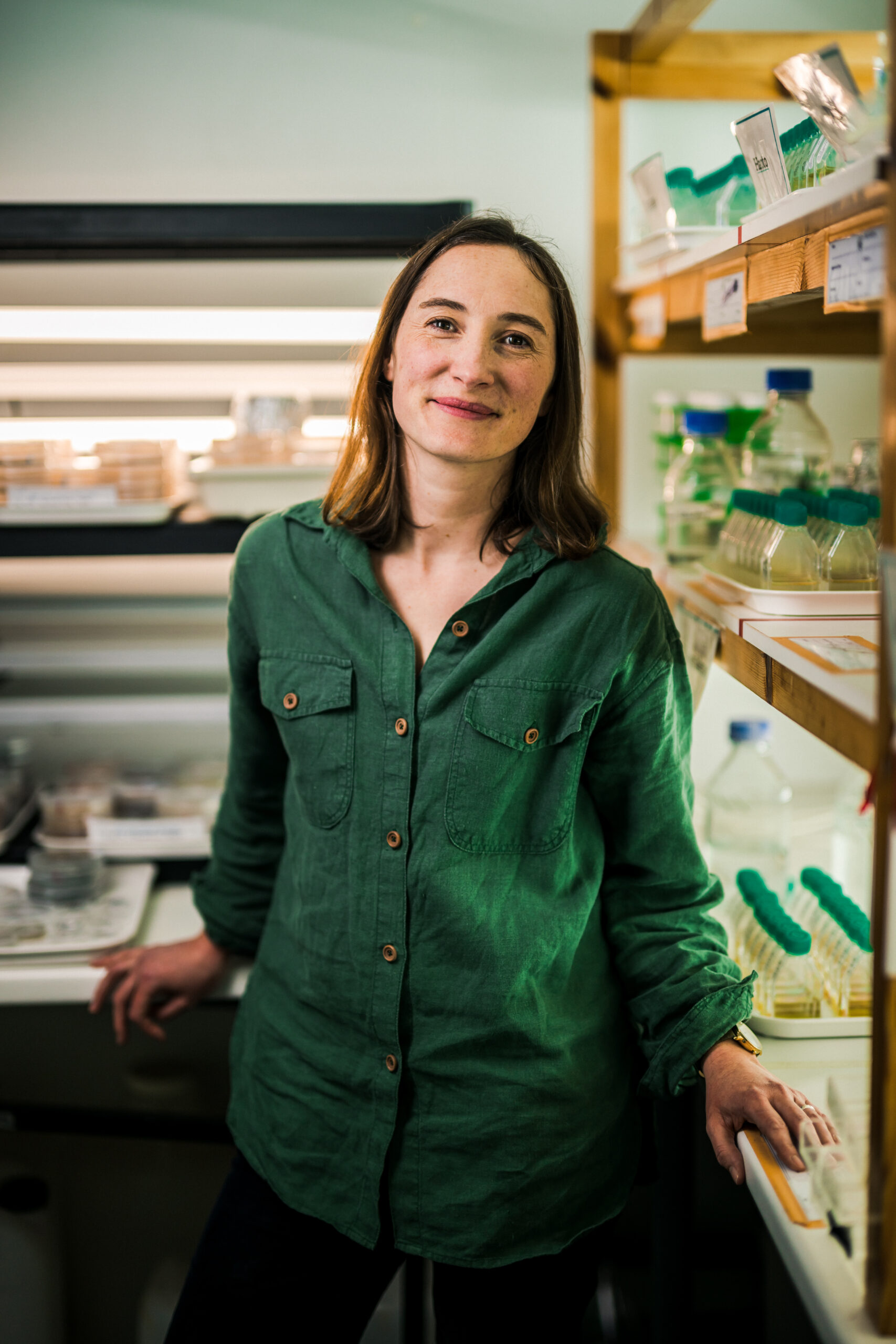
Dr Katherine Helliwell
NERC Independent Research Fellow
Dr Katherine Helliwell
NERC Independent Research Fellow
I am a molecular microbiologist interested in the fundamental biology of photosynthetic marine microbes, which critically underpin marine ecosystems. Following a degree in Biological Sciences at the University of Bristol, I pursued a PhD and postdoc with professor Alison Smith in the Department of Plant Sciences, University of Cambridge. During this time my work dissected the role of organic nutrients (vitamins) in governing interactions between phytoplankton and bacteria, and brought significant advances to our understanding in vitamin metabolism in aquatic microbes. After a postdoc at the MBA with Professor Colin Brownlee on algal signalling mechanisms, I was awarded a NERC Independant Research Fellowship and currently hold a joint appointment with the University of Exeter. Our research group couples novel molecular tools with environmental methods to investigate interactions of algae with other marine microbes, algal nutrient physiology and cell signalling mechanisms. Our overarching aim is to better understand how algae sense and respond to their environment.
Research Group: Algal Microbiome and Ecophysiology
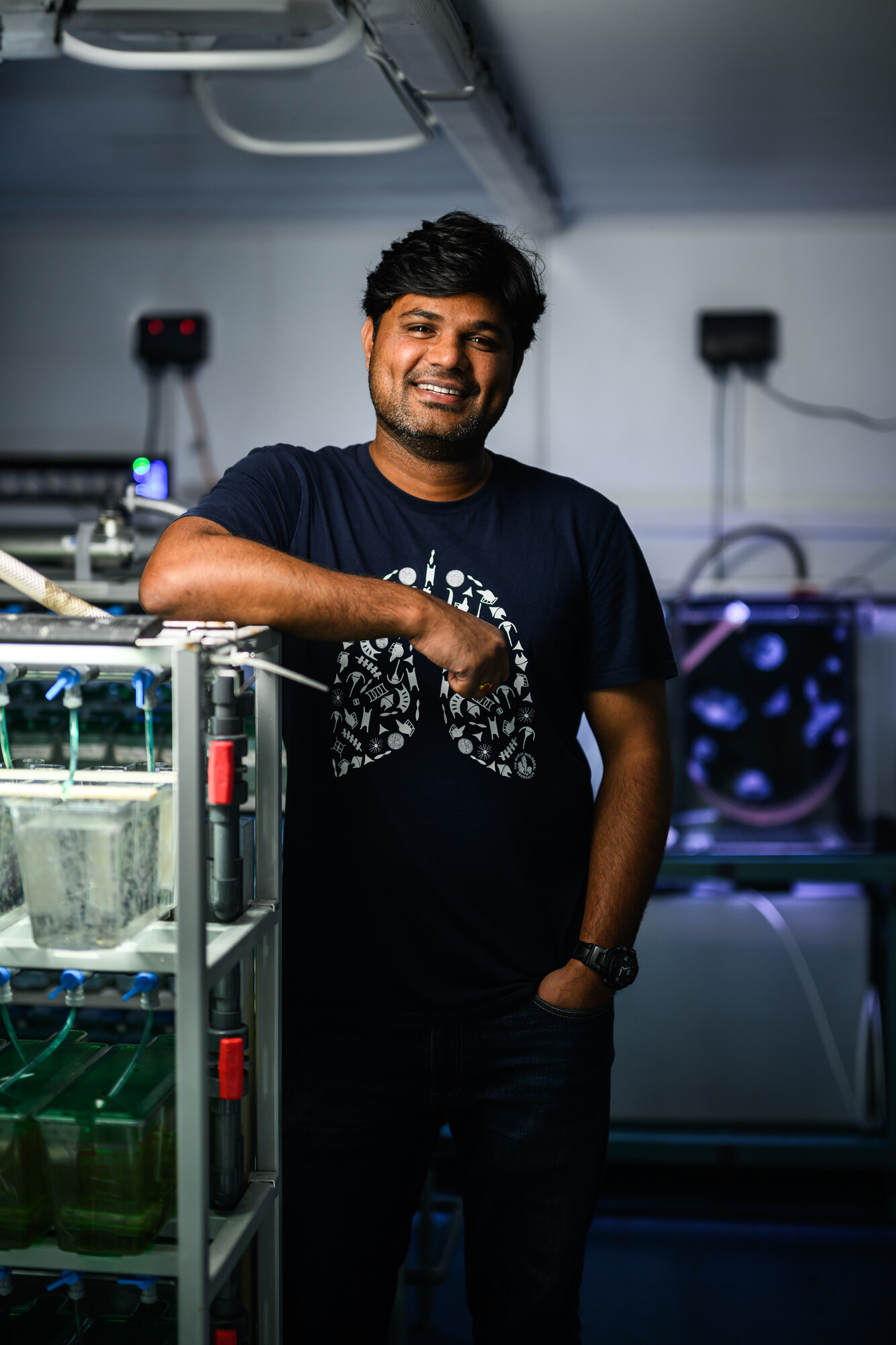
Dr Vengamanaidu Modepalli
Anne Warner Research Fellow
Dr Vengamanaidu Modepalli
Anne Warner Research Fellow
I am a comparative and molecular evolutionary biologist, I explore non-bilaterian animals like sponges and cnidarians (corals, sea anemones, and jellyfish) to gain insights into fundamental evolutionary principles. After completing my PhD at Deakin University in Australia, I joined Professor Yehu Moran’s lab at the Hebrew University of Jerusalem in Israel to investigate the workings of post-transcriptional gene regulation by small RNAs in cnidarians. In 2018, I received an Anne Warner Research Fellowship to establish my research group at the Marine Biological Association. My research group explores various evolutionary topics, including the emergence of neurons, the evolution of the larval sensory system, and the process of small RNA biogenesis. Our work encompasses molecular and ecological perspectives, as well as directs on immediate global environmental issues while exploring fundamental mechanisms.
Research group: Evolution of early branching metazoans
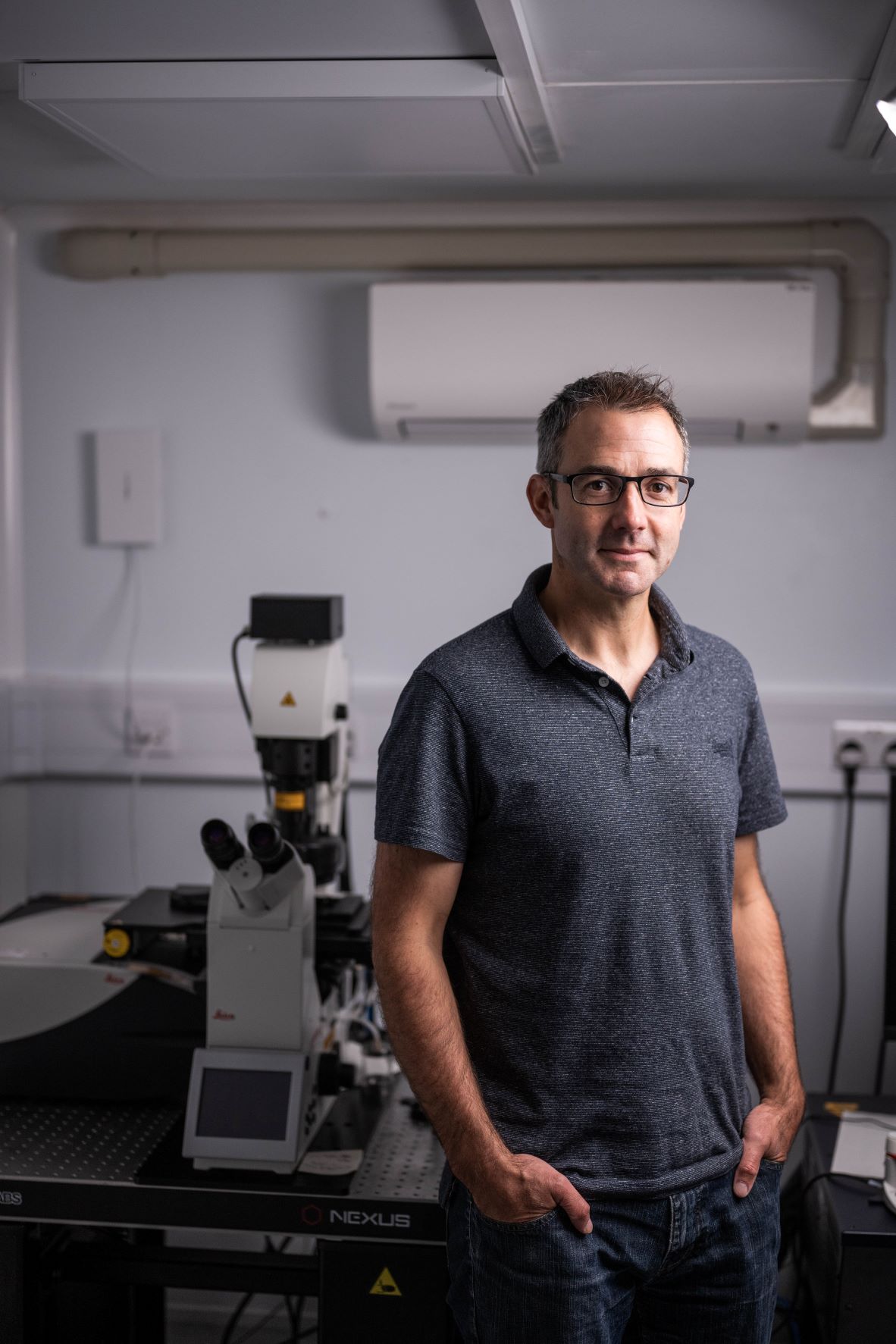
Dr Glen Wheeler
Senior Research Fellow
Dr Glen Wheeler
Senior Research Fellow
I am a molecular cell biologist studying the physiology of marine phytoplankton and other algae. My group examines the mechanisms through which algae sense and respond to their environment, using advanced imaging techniques to visualise these processes in single cells. After studying for a degree in Biology at Nottingham University and a PhD in Plant Biochemistry at the University of Exeter, I moved to Plymouth to study the cell biology of marine algae, initially at Plymouth Marine Laboratory and then moving to the Marine Biological Association in 2014. In recent years, our research has examined how marine phytoplankton are able to respond to changes in salinity, temperature and nutrients. We are also particularly interested in the cell biology of coccolithophores, an important group of marine phytoplankton that have a major impact on the global carbon cycle through their ability to produce an external covering of calcium carbonate plates (coccoliths). By understanding how these algae respond to a changing environment, our research will help us better understand how marine ecosystems will be influenced by future changes in the Earth’s climate.
Research Group: Algal Signalling and Stress Physiology




